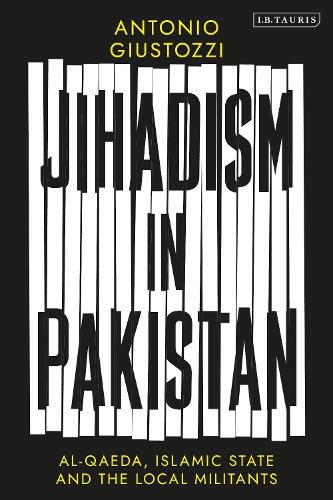Readings Newsletter
Become a Readings Member to make your shopping experience even easier.
Sign in or sign up for free!
You’re not far away from qualifying for FREE standard shipping within Australia
You’ve qualified for FREE standard shipping within Australia
The cart is loading…






Pakistan is host to the largest concentration of jihadist groups in the world. Since the 1980s, the Pakistani state has been accused of sponsoring local jihadist groups and sending Pakistani volunteers to support them.
This book is based on almost 100 interviews, conducted mainly in Urdu and Pashto, from within Al-Qaeda and affiliated jihadist groups. It examines the relationship between the Pakistani security agencies and Al-Qaeda, and how they both became entangled and used by the local jihadists they were themselves trying to exploit. The interviews paint a picture of the shifting strategies and priorities of the different jihadi groups in the early 21st century, covering their ideological objectives, their agreements and disagreements over tactics, as well as pressure from rival militant groups and internal factionalism.
The book is the most in-depth study of jihadism in Pakistan, and Antonio Giustozzi highlights the strategies global jihadists deployed after 9/11 and how Al-Qaeda tried to manage the largest jihadist group in Pakistan, the Tehrik-i-Taliban Pakistan (TTP). The book also covers other key issues in South Asian security, such as the impact of Islamic State on Al Qaeda’s power after 2014, why Al-Qaeda continue to back the TTP, and what is happening with the groups focused on taking jihad to Kashmir and India.
$9.00 standard shipping within Australia
FREE standard shipping within Australia for orders over $100.00
Express & International shipping calculated at checkout
Pakistan is host to the largest concentration of jihadist groups in the world. Since the 1980s, the Pakistani state has been accused of sponsoring local jihadist groups and sending Pakistani volunteers to support them.
This book is based on almost 100 interviews, conducted mainly in Urdu and Pashto, from within Al-Qaeda and affiliated jihadist groups. It examines the relationship between the Pakistani security agencies and Al-Qaeda, and how they both became entangled and used by the local jihadists they were themselves trying to exploit. The interviews paint a picture of the shifting strategies and priorities of the different jihadi groups in the early 21st century, covering their ideological objectives, their agreements and disagreements over tactics, as well as pressure from rival militant groups and internal factionalism.
The book is the most in-depth study of jihadism in Pakistan, and Antonio Giustozzi highlights the strategies global jihadists deployed after 9/11 and how Al-Qaeda tried to manage the largest jihadist group in Pakistan, the Tehrik-i-Taliban Pakistan (TTP). The book also covers other key issues in South Asian security, such as the impact of Islamic State on Al Qaeda’s power after 2014, why Al-Qaeda continue to back the TTP, and what is happening with the groups focused on taking jihad to Kashmir and India.